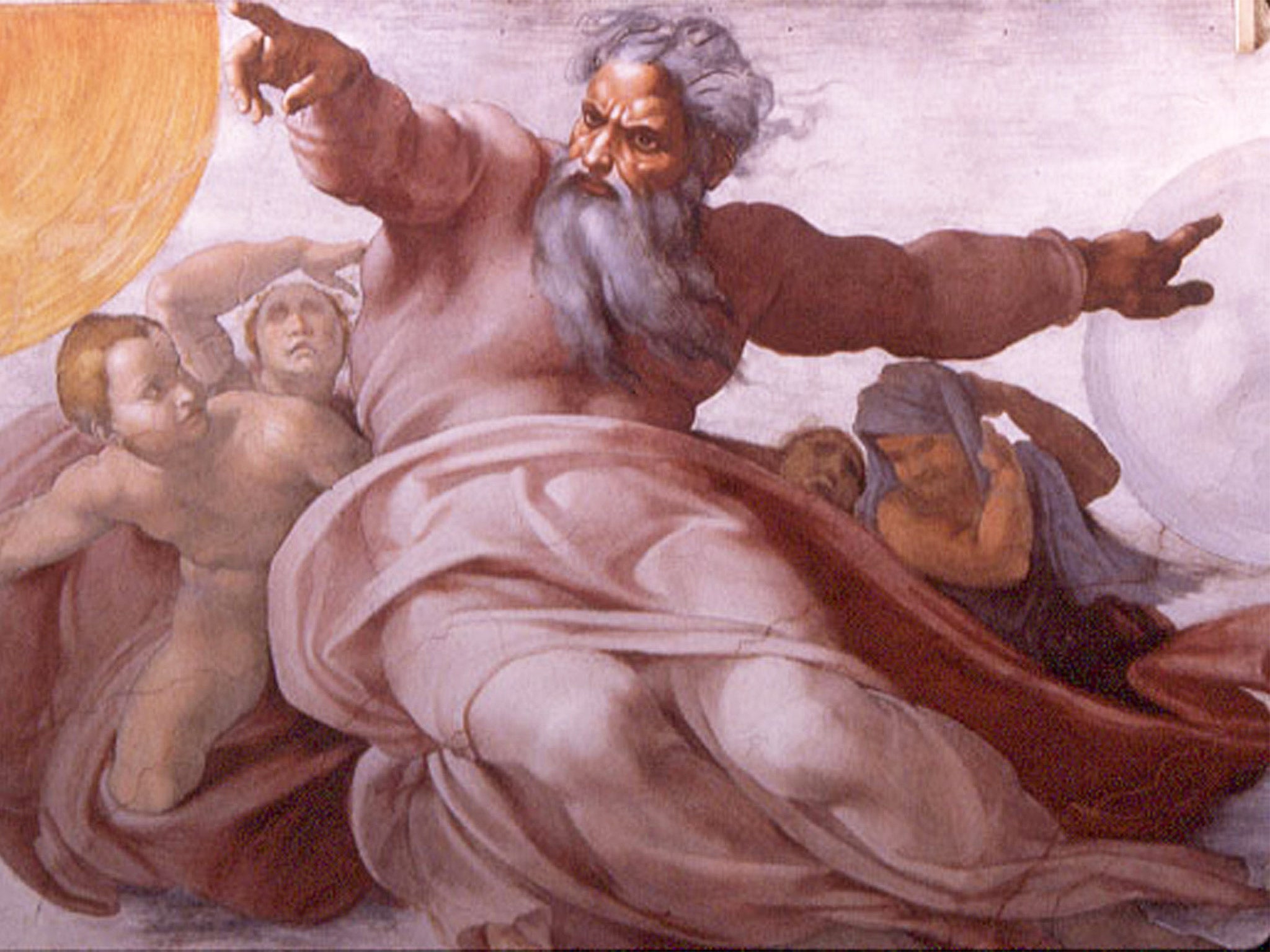Belief in a vengeful god 'may have helped to establish early civilisations'
Study finds strong belief in a punitive god may have aided co-operation between strangers who follow same religion

Your support helps us to tell the story
From reproductive rights to climate change to Big Tech, The Independent is on the ground when the story is developing. Whether it's investigating the financials of Elon Musk's pro-Trump PAC or producing our latest documentary, 'The A Word', which shines a light on the American women fighting for reproductive rights, we know how important it is to parse out the facts from the messaging.
At such a critical moment in US history, we need reporters on the ground. Your donation allows us to keep sending journalists to speak to both sides of the story.
The Independent is trusted by Americans across the entire political spectrum. And unlike many other quality news outlets, we choose not to lock Americans out of our reporting and analysis with paywalls. We believe quality journalism should be available to everyone, paid for by those who can afford it.
Your support makes all the difference.Belief in a vengeful god who metes out terrible punishment might have aided unselfish co-operation between strangers that helped to establish early civilisations, according to a study into the psychology of religious faith.
Scientists have found that the stronger the belief in an all-powerful and punitive god, the more likely it is that these believers will be more generous to strangers who follow the same religion.
The findings have emerged from an investigation of nearly 600 people around the world from eight indigenous communities and diverse faiths – including Christianity, Hinduism and Buddhism – with widely varying attitudes to divine retribution.
The researchers found that the stronger the belief in all-seeing and punitive gods, the more likely it was that people would contribute to the wellbeing of fellow believers who they have never met, even to the detriment of themselves and their immediate community.
The results suggest that belief in omnipotent, vengeful gods may have contributed to the apparently altruistic co-operation between distant social groups which helped to establish the rise of cities and civilisations following the invention of agriculture more than 10,000 years ago.
“Our results support the hypothesis that beliefs in moralistic, punitive and knowing gods increase impartial behaviour towards distant co-religionists, and therefore can contribute to the expansion of prosociality,” the researchers write in their study, published in the journal Nature.
The scientists, led by Benjamin Purzycki of the University of British Columbia in Vancouver, interviewed each participant and asked them to take part in a game where they could offer a limited number of real coins to their own community, or to a group of fellow believers in a distant place who they had never met.
The game was carefully designed to allow each participant to follow their own conscience in deciding which cup to put their coins – their own community’s cup or that of a distant community. Each participant was also asked a battery of questions to determine how all-seeing and vengeful they viewed their god.
“When people report not knowing if a god punishes, they put considerably fewer coins in the cups of distant co-religionists,” the scientists said.
Other factors that could have influenced the outcome, such as ethnicity or type of society, were taken into account.
However, it was belief in a vengeful god that seemed to be the overriding link with how generous someone was to strangers of the same faith, the scientists found.
“Belief in rewards from the god could not account for the results – supernatural punishment seemed responsible,” said Dominic Johnson of Oxford University, who was not involved in the research, writing in an accompanying article in Nature. “It is worth emphasising that the subjects in this experiment were not co-operative with random strangers, only with strangers that shared the same god,” Dr Johnson said.
“We therefore still face the challenge of understanding the promotion of co-operation and trust among members of different religions. [The] finding that sharing the same god is key to co-operation suggests that this may be an even harder nut to crack,” he said.
“Religion is arguably the most powerful mechanism that societies have found to bind people together in common purpose… We are still grappling to understand, from a scientific perspective, why and under what circumstances humans sacrifice their own welfare for the benefit of distant others,” he added.
Join our commenting forum
Join thought-provoking conversations, follow other Independent readers and see their replies
Comments